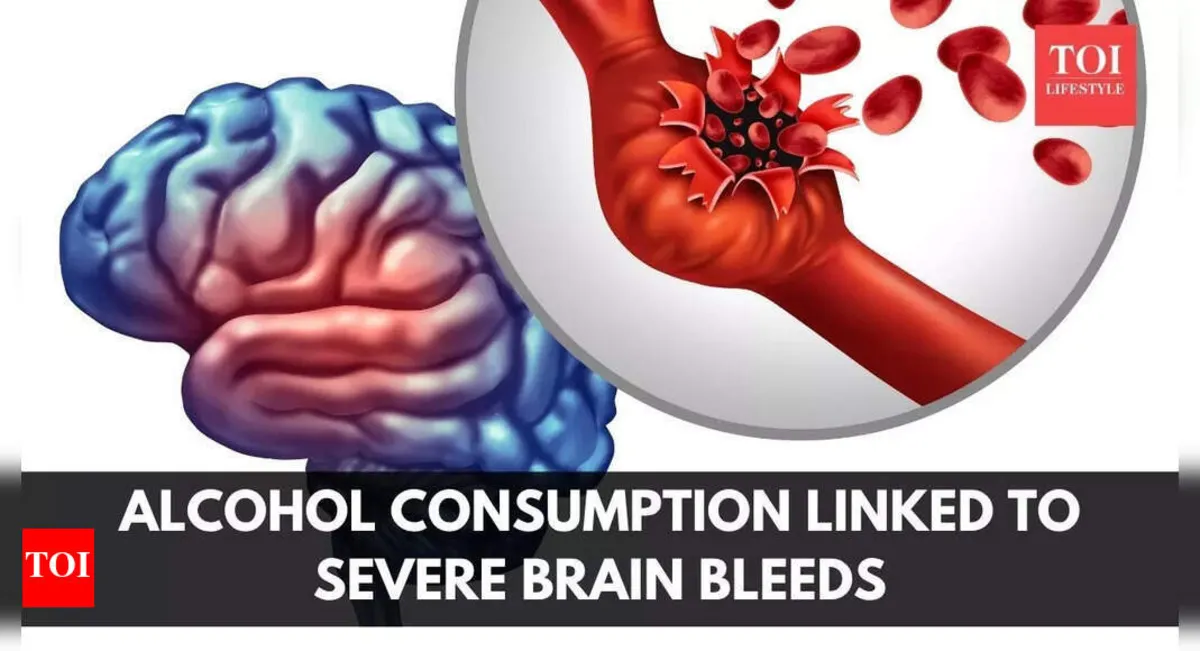
A groundbreaking study reveals that excessive alcohol consumption, even at just two drinks daily, is associated with earlier onset and more severe brain bleeds. Researchers from Mass General Brigham found that heavy drinkers experienced brain bleeds at a much younger age, with these incidents characterized by larger hemorrhages and increased involvement of deep brain structures. To safeguard both brain health and cardiovascular health, experts recommend limiting alcohol intake to no more than three drinks per week.
Many consider a few drinks to be a harmless way to unwind after a long day; however, the potential consequences of alcohol consumption can extend far beyond the temporary buzz. According to the World Health Organization (WHO), alcohol leads to approximately 2.6 million deaths globally each year. The adverse effects of alcohol begin with the very first sip, and chronic excessive drinking can result in serious conditions such as brain bleeds.
The recent study published in Neurology, the medical journal of the American Academy of Neurology, highlights the alarming connection between excessive alcohol consumption and significant brain damage, particularly in younger individuals. The findings underscore the importance of understanding the risks associated with alcohol intake.
A brain bleed, also known as an intracerebral hemorrhage or hemorrhagic stroke, occurs when a blood vessel within the brain ruptures. According to research, approximately 50% of individuals with this condition do not survive, and around 30% are left severely disabled. Dr. Edip Gurol, a clinician investigator at Mass General Brigham, emphasizes the severity of brain bleeds, stating, “They come on suddenly, cause severe damage, and often leave patients with life-changing disabilities.”
To investigate the impact of excessive alcohol consumption on brain bleeds, researchers analyzed a cohort of 1,600 patients admitted to Massachusetts General Hospital between 2003 and 2019. All patients had suffered a brain bleed that was not linked to trauma. Using CT and MRI scans, the researchers assessed the size and location of the brain bleeds, revealing concerning patterns among heavy drinkers.
Results showed that about 7% of the patients reported consuming three or more drinks per day. Interestingly, those who drank heavily experienced brain bleeds at an average age of 64 compared to 75 for lighter drinkers. The brain bleeds in heavy drinkers were found to be 70% larger and were twice as likely to involve deep brain structures or spread into the brain’s fluid-filled spaces. Alarmingly, even a lower intake of just two drinks per day was linked to a younger age of onset for brain bleeds.
The study also found that individuals who excessively consumed alcohol exhibited lower platelet counts and higher blood pressure upon arriving at the hospital. Low platelet counts hinder the body’s ability to stop bleeding, while high blood pressure can damage small blood vessels in the brain, increasing the risk of a brain bleed. This damage is also associated with conditions like dementia, memory loss, and mobility issues.
Researchers hypothesize that heavy alcohol consumption elevates blood pressure, weakening small blood vessels in the brain and making them more susceptible to leaking or rupturing. The solution, they propose, is straightforward: reduce alcohol intake. “We now know that heavy drinking leads to larger, earlier brain bleeds,” Dr. Gurol advises. “Minimizing or stopping alcohol use is an important step to lower that risk.”
For individuals at relatively low risk of brain bleeds, limiting alcohol consumption to no more than three drinks per week could be an effective strategy to protect against all types of stroke and maintain both brain and cardiovascular health.
Important Note: The information provided in this article is intended for educational purposes only and should not be considered medical advice. Always consult a qualified healthcare professional before making any changes to your diet, medication, or treatment regimen.